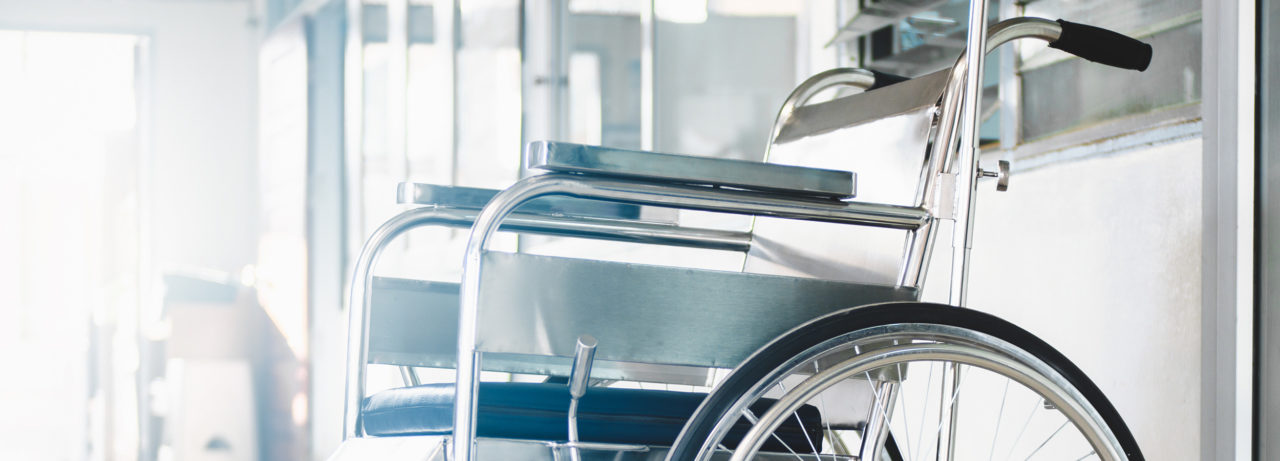Share
Illness and advanced age can cause mobility issues for your elderly loved one. If he or she needs a wheelchair to help with getting around, here’s what you can do to provide the best care.
Prioritize Comfort
Choose clothing your loved one can wear comfortably while sitting in a wheelchair. Look for items with elastic waistbands and large buttons, and avoid anything with the potential to dig into the skin.
Make sure your loved one changes position every couple of hours. If he or she can’t move alone, help to shift him or her into another position. For those who are still partially mobile, taking short walks to promote circulation is a good option.
Inspect skin regularly for signs of pressure ulcers, such as red, blue or purple discoloration. Have these spots examined and treated by a doctor or in-home nurse before they progress to blisters or open sores.
Invest in the Best Support
Maintaining good posture prevents problems with circulation.
Seat pads, head supports, and foot supports all help align your loved one’s body in the wheelchair and reduce the risk of pressure ulcers. Look for appropriate materials, such as waterproof pads or cloth that prevents the buildup of heat, to ensure comfort.
A wheelchair seat belt can be beneficial if your loved one has trouble staying upright.
Enable Independence
Wheelchair accessories like storage and lap pads allow your loved one to maintain as much independence as possible. Storage options include book and magazine holders and spaces to stash small projects or tools for hobbies. Cup holders keep water and other drinks close at hand.
If your loved one can move the wheelchair without help or uses a motorized chair, arrange the house to make it as easy as possible for him or her to get around. Remove potential obstacles, and place essential items at appropriate heights to ensure accessibility.
Practice Proper Maintenance
To keep your loved one safe, inspect his or her wheelchair regularly. Check the wheels for damage, and oil them to promote smooth movement. Test how well the brakes lock, and inspect any motorized parts to make sure they function properly. Wheelchairs should also be cleaned regularly to keep surfaces sanitary.
Transitioning your elderly loved one to a wheelchair may be challenging at first, but these simple practices can make it easier for both of you and ensure he or she stays safe and comfortable.
If you or your loved one are in a wheelchair and need assistance with daily tasks, Caring Home Care can help. We’ll match you with the ideal caregiver, so you can experience the highest quality of life possible. Learn more today!
In the world of healthcare and home care, the roles of caregivers and nurses are often confused, yet they are distinct in their responsibilities, training, and the nature of their work. This article explores the five main differences between caregivers and nurses, shedding light on their unique contributions to patient care. Educational and Training Requirements […]
Falls among the elderly can lead to significant health issues, including injuries and reduced mobility. Home care aides and Certified Nursing Assistants (CNAs) play a critical role in preventing falls and ensuring the safety of elder patients. Here are five key ways they can help: Assessment and Personalized Care Planning: Home care professionals are trained […]
Selecting a live-in caregiver is a crucial decision for families and individuals who require ongoing, in-home care. This blog will provide insights and practical advice on choosing the right live-in caregiver, ensuring a good match, and how Caring Home Care can help facilitate this process. Understanding the Role of a Live-In Caregiver Live-in caregivers provide […]
Recovering from surgery can be a challenging process, especially in the comfort of one’s home. In-home caregivers play a pivotal role in this phase, providing essential support and care. This blog will dig into the importance of in-home caregivers in post-operative recovery, highlighting the specific services offered by Caring Home Care that cater to these […]
Need A Caregiver? Fill Out Form Below
With our competitive rates, we make receiving in-home care affordable regardless of whether you’re using your insurance or paying out of pocket.









